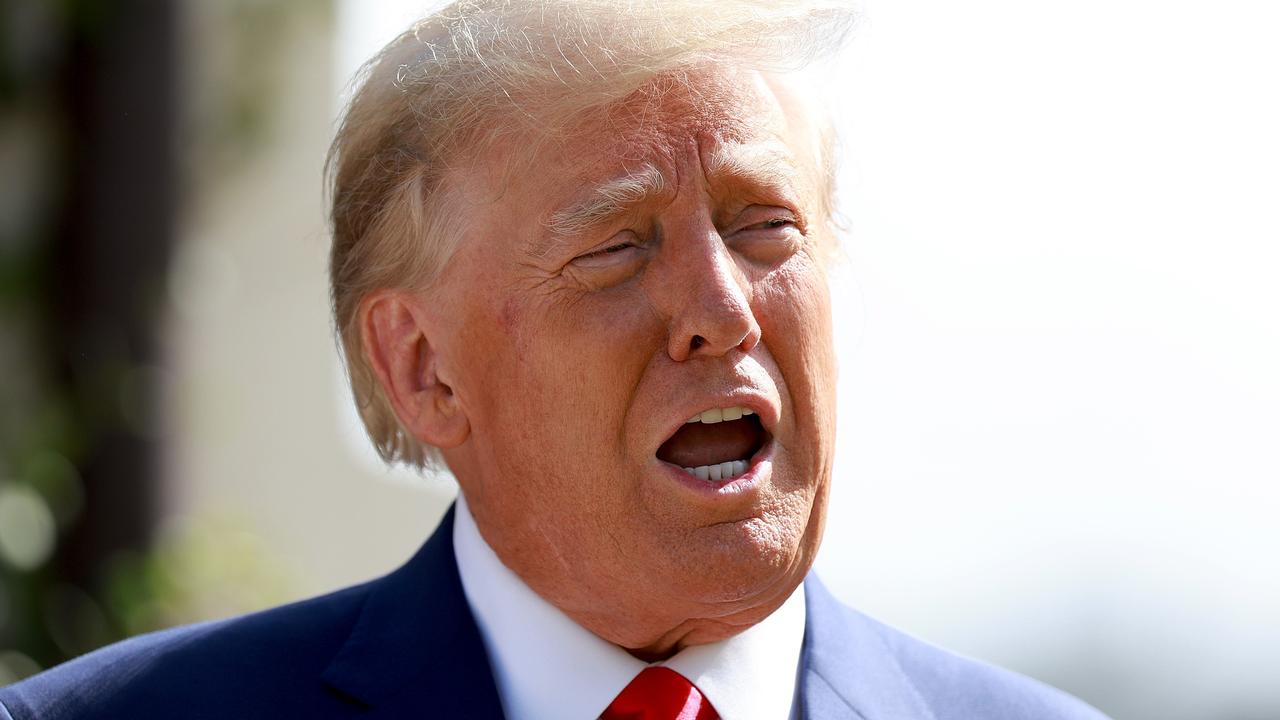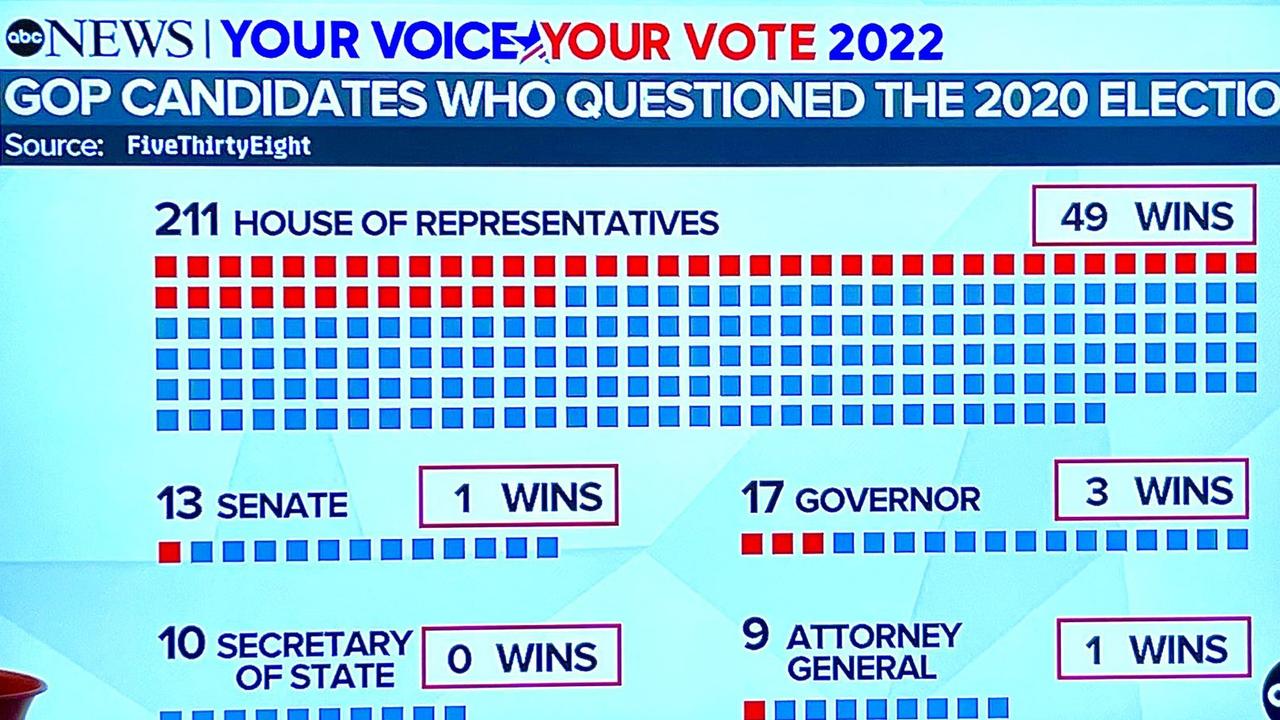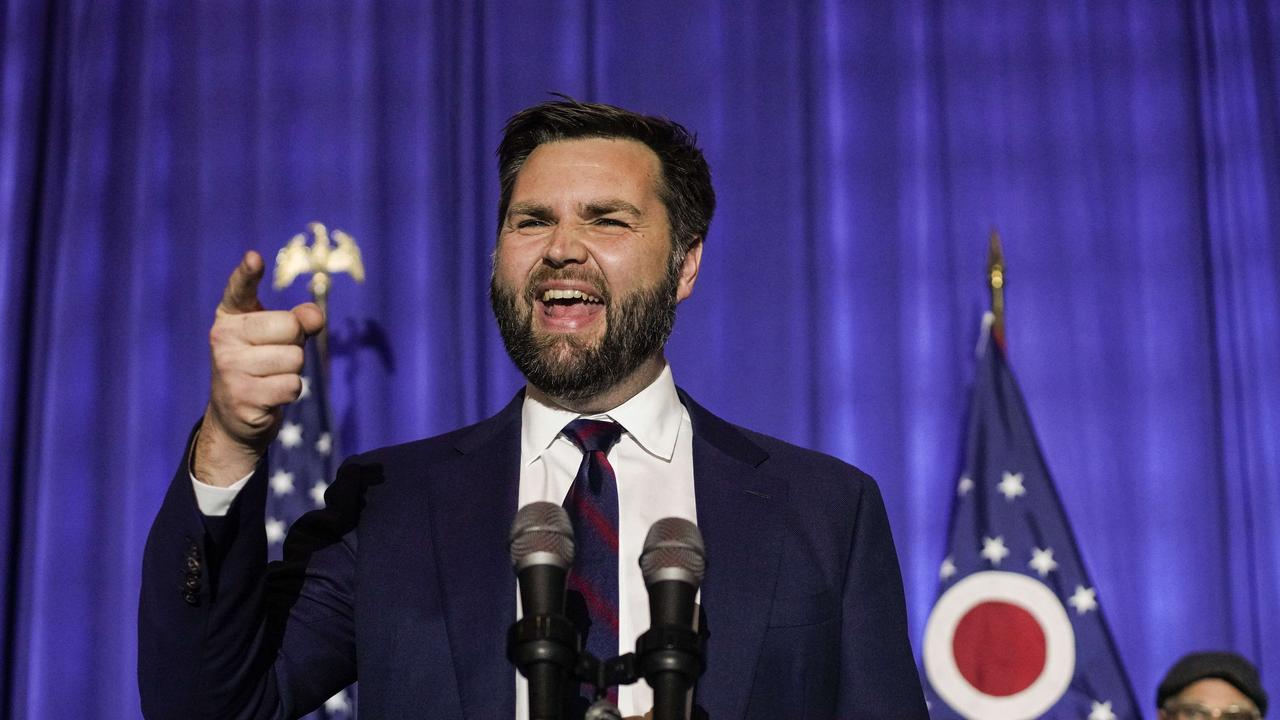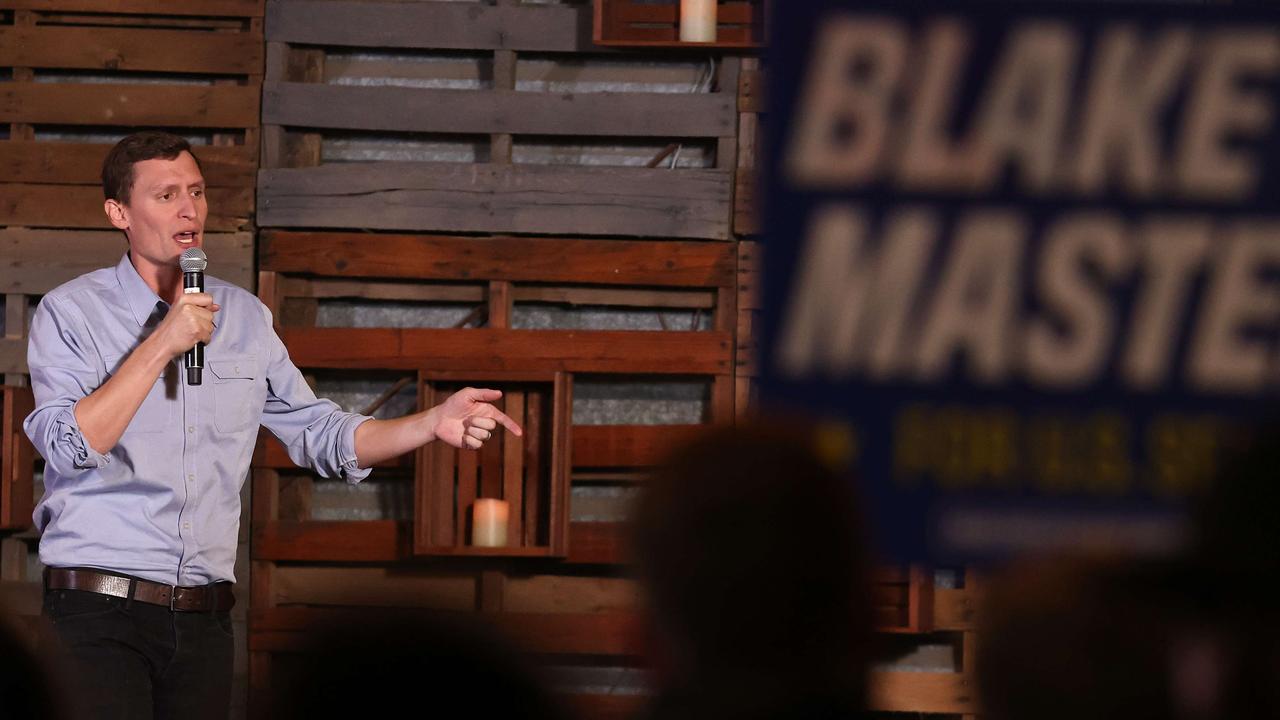US midterm election results 2022: Hundreds of election deniers could win office
The midterm elections have been seen as a failure for Donald Trump and his presidential plans. But an eye-opening TV graphic shows another picture.
The US midterm elections may not have seen the scale of breakthrough the Republican party was hoping for.
And it may have severely damaged Donald Trump’s chances of winning the Republican nomination for the 2024 presidential elections.
But there was breakthrough for a certain type of candidate – and it could yet bode well for Mr Trump in the long run.
An alarming graph shown on US television on election night showed how many candidates in the election had questioned the legitimacy of the 2020 presidential election. That’s the one Trump lost, and which he and supporters -- including several Republican candidates -- continue to say was “stolen”.
Many of those candidates had campaigned heavily on that issue.
In total 211 candidates to the House of Representatives had, at least at times, cast doubt on the legitimacy of the election that saw Joe Biden become President.
As of Tuesday night, US time, 49 of those 211 House candidates had been duly elected, stated the ABC.
Stream the latest on the mid-term elections from the best US news sources, including CNN, Fox News and the Wall Street Journal, with Flash. 25+ news channels in 1 place. New to Flash? Try 1 month free. Offer available for a limited time only >

On social media, Mr Trump acknowledged the overall results for the Republicans were “somewhat disappointing,” but added that, “from my personal standpoint it was a very big victory – 219 wins”.
Those 219 claimed wins are candidates across various roles – from the House to state attorney generals – that he endorsed. Almost all of them would have at least paid lip service to Mr Trump’s claim the election was stolen.
It’s true that election deniers were foiled in many of the most high profile federal races. But 200 plus elected officials – even those lower down the ladder of state power – believing the election was stolen is significant.
Concerningly some of those elected on Tuesday could have a say over how future elections are run. Future elections that could involve Mr Trump.
To be clear, there is no real evidence that the 2020 election was rigged or was not an accurate reflection of the American electorate despite the ongoing claims by Mr Trump and his supporters. A USA Today analysis found of 62 lawsuits filed challenging the election, 61 failed. The one win affected so few ballot papers it would not have changed Mr Biden’s win.

Hundreds of election denier candidates
Results for the midterm Congressional elections are still coming in. So far no party has won either chamber, but the Republicans (GOP) are tipped to – just – take control of the House of Representatives. It remains a toss-up as to whether the GOP can take the Senate.
As well as the 211 standing for house seats, the ABC TV analysis also stated that 13 election deniers had stood for the Senate with one win, and 17 in Governor polls with three wins up to late on Tuesday night.
Think tank the Brookings Institute has said that overall more than 300 midterm candidates may have cast doubt on the 2020 outcome.
“The persistent and high-volume repetition by Trump and his high-profile surrogates has convinced many other Republicans that election was stolen.”
Indeed, up to 70 per cent of GOP supporters now question the veracity of the presidential election, according to polls.

Those candidates who at some point had been at the very least vague about the election outcome, and failed in their bids for power, included Mehmet Oz.
He found fame on the Oprah Winfrey Show as medical expert “Dr Oz”and stood for the Senate in Pennsylvania.
In April, while seeking an endorsement from Mr Trump, Dr Oz said “we cannot move on from the 2020 election”. He later said he would have affirmed Mr Biden’s victory if he had been in the Senate.
Also in Pennsylvania, Doug Mastriano convincingly lost the race to be Governor. Mr Trump had endorsed the far-right candidate, saying he had “revealed the theft of the 2020 election”.
In New Hampshire, the Senate Republican candidate was veteran Dan Bolduc who attended the January 6, 2020 rally which led to the storming of Congress. He was also endorsed by Trump who called him a “strong and proud election denier”. Mr Bolduc later said he wasn’t an election denier. He still lost.

Election denying candidates that have won
But some candidates who have questioned Trump’s 2020 loss did prevail in major races. Mr Vance won the race to be a Senator for Ohio. He said in March that “I think the election was stolen from Trump”.
Blake Masters, who could yet become a Senator for Arizona, posted a video on social media where he said: “I think Trump won in 2020. He should be president today”.
America’s most powerful institutions conspired to manipulate the 2020 election. Donald Trump should be president today. pic.twitter.com/zGKGsxHOmI
— Blake Masters (@bgmasters) November 9, 2021
Also in Arizona, former TV newsreader Kari Lake is still in contention to become governor.
“A lot of people who were responsible for that election know that there were rules broken and laws broken,” she said on ABC US TV in October.
Ms Lake added that she would only accept a midterm loss in Arizona if she could be reassured there had been a “fair, honest, and transparent election”.
It wasn’t clear what her definition of “fair, honest, and transparent” was.

Election denying politicians have power over elections
One concern is the power elected politicians, such as Ms Lake, could have over upcoming elections as in many cases they have responsibility for their administration. That includes key aspects of the 2024 presidential poll that Mr Trump could yet contest.
“Governors, secretaries of state and attorneys general, if they are elected, will have a great deal to say about how elections in their state will be run in the future,” stated the Brookings Institute.
Political scientist at the University of Sydney Luke Mansillo said it was possible as many as four Senate candidates who have expressed doubts about the election will be elected.
“The Senate typically has not had such delusional people in it; unlike the House which had the Tea Party from 2010,” Mr Mansillo said.
“These (Senators) will be making laws for six years and it will fundamentally change the Senate.
“There will be a long tail effects that these strange people will do to American politics even if Trump runs and loses the 2024 presidential election.”
Mr Mansillo said the election deniers could end up being a large bloc in the Republican Senate caucus.
“The party will likely continue to maintain party discipline because that’s how it can frustrate the Biden administration,” he said.
“But (deniers) in the Senate will have a lot of power to set the terms. If they overplay their hand it might split the party.”

One election deniers won't question
The Brookings Institute said the agenda of many deniers that gain office will be to restrict the number of ways people can vote as well as tightening up ID requirements.
That’s despite there being very little evidence there is much in the way of voting fraud taking place.
While this would be done under the guise of “election integrity” – a key phrase used by deniers – it could also mean people who are fully entitled to vote may be prevented from doing so.
“The effect of this agenda on the health of democracy will vary,” Brookings stated.
“Getting rid of early voting altogether and making absentee ballot access dependent on more arduous rules and regulations will probably have a disproportionately negative effect on the elderly, those who are economically disadvantaged or less educated, and young voters.”
But there is one election the deniers are unlikely to question – the election that helped them achieve power.



